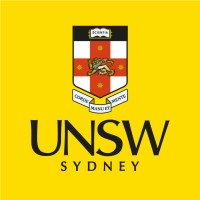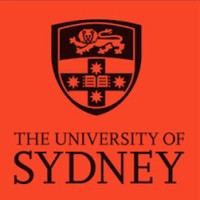Loading...
Australian University Jobs
Discover how well you match with a job using UniJobAI!
Closing: 02-Oct-2024
Expired
Job Summary
Dates
- Opening Date: 11-Sep-2024
- Closing Date: 02-Oct-2024
Location
- Kensington – Sydney, Australia
Salary
- AUD $110,059 to $117,718 per annum + 17% superannuation
Responsibilities
- Assist in the selection of materials for composites used in a proof-of-concept cryogenic composite tank.
- Develop storage system simulations to guide the design and manufacturing approaches of larger tanks for commercialisation.
- Participate in conferences and workshops.
- Assist with the supervision of students.
- Engage actively with fellow researchers at UNSW and other institutions.
Requirements
- A PhD (or equivalent) in a related discipline, such as Mechanical/Aerospace/Materials/Manufacturing Engineering.
- Proven commitment to proactively keeping up to date with discipline knowledge and developments.
- Demonstrated ability to undertake high quality academic research and conduct independent research with limited supervision.
- Demonstrated track record of publications and conference presentations relative to opportunity.
- Demonstrated ability to work in a team, collaborate across disciplines and build effective relationships.
- Evidence of highly developed interpersonal skills.
- Demonstrated ability to communicate and interact with a diverse range of stakeholders and students.
- An understanding of and commitment to UNSW’s aims, objectives and values in action, together with relevant policies and guidelines.
- Knowledge of health and safety responsibilities and commitment to attending relevant health and safety training.
Benefits
- Opportunity to develop industry research and professional activities.
- Participation in conferences and workshops.
- Engagement with fellow researchers at UNSW and other institutions.
Notes
- Applications close at 11:55 pm (Sydney time) on Wednesday 2nd October 2024.
- Contact: Eugene Aves – Talent Acquisition Consultant, E: eugene.aves@unsw.edu.au.
Closing: 02-Oct-2024
Expired
Job Summary
Dates
- Opening Date: 11-Sep-2024
- Closing Date: 02-Oct-2024
Location
- Kensington – Sydney, Australia
Salary
- AUD $110,059 to $117,718 per annum + 17% superannuation
Responsibilities
- Investigating the mechanical and adsorbent properties of Metal Organic Framework (MOF) hydrogen storage materials.
- Simulating and optimizing the manufacturing process for Rux Energy’s patented MOFs.
- Developing industry research and professional activities.
- Participating in conferences and workshops.
- Assisting with the supervision of students.
- Engaging with fellow researchers at UNSW and other institutions.
Requirements
- A PhD (or equivalent) in a related discipline, such as Mechanical/Aerospace/Materials/Manufacturing Engineering.
- Proven commitment to proactively keeping up to date with discipline knowledge and developments.
- Demonstrated ability to undertake high quality academic research and conduct independent research with limited supervision.
- Demonstrated track record of publications and conference presentations relative to opportunity.
- Demonstrated ability to work in a team, collaborate across disciplines and build effective relationships.
- Evidence of highly developed interpersonal skills.
- Demonstrated ability to communicate and interact with a diverse range of stakeholders and students.
- An understanding of and commitment to UNSW’s aims, objectives and values in action, together with relevant policies and guidelines.
- Knowledge of health and safety responsibilities and commitment to attending relevant health and safety training.
Benefits
- Opportunity to develop industry research and professional activities.
- Participation in conferences and workshops.
- Engagement with fellow researchers at UNSW and other institutions.
Notes
- Applications close at 11:55 pm (Sydney time) on 2nd October 2024.
- Contact: Eugene Aves – Talent Acquisition Consultant, eugene.aves@unsw.edu.au.
Closing: Not specified
Job Summary
Dates
- Opening date: not available
- Closing date: not available
Responsibilities
- manage own academic research and administrative activities. This involves small-scale project management to coordinate multiple aspects of work to meet deadlines
- adopt existing and develop new scientific techniques and experimental protocols
- train postgraduate and undergraduate students on scientific techniques and experimental protocols
- organise and document weekly research meetings with research collaborators
- prepare research progress reports upon requests from research collaborators
- prepare journal articles based on experimental results or systematic literature reviews for publication in high-impact journals
- develop new research ideas and present detailed proposals for competitive grants or fellowship applications
- ensure that all aspects of the research program are conducted according to WHS regulations.
Requirements
- a PhD in chemical engineering/material science and engineering/chemistry (electrochemistry) or other closely related field from a reputable institution
- a good track record of publications in top journals on catalyst research
- experience in synthesis and characterisation, in particular in hydrogen production and/or hydrogen fuel cells
- experience in catalyst characterisation, e.g., SEM/TEM/XRD/Raman XAS/physisorption/electrochemical tools
- experience in assembly and conducting electrochemical tests using
- excellent communication and interpersonal skills with high written and spoken English competency.
Benefits
- Base Salary, Level A6 $105,350 p.a. + 17% superannuation
Notes
- Full-time, fixed term until 31 January 2026.
- Located at the Faculty of Engineering on the Darlington Campus
- This position is funded by an Australian Research Council Discovery project.
- Working closely with Professor Yuan Chen and his team
- Pre-employment checks required
- EEO statement
- COVID safety precautions in place
Closing: 22-Sep-2024
Expired
Job Summary
Dates
- Opening Date: 20-Aug-2024
- Closing Date: 22-Sep-2024
Responsibilities
- Develop multiscale geomechanical tools and workflows for basin-scale screening for CCS locations.
- Enable prediction of pre-injection stress conditions and geomechanical properties of potential CO2 storage sites.
- Quantify the impacts of historical injection and extraction activities on poro-thermo-mechanical properties of CO2 reservoirs.
- Understand the impact of fault rock properties on the likelihood of fault reactivation during CO2 injection.
- Constrain the effects of CO2-water-rock interactions on the geomechanical integrity of reservoirs and seals.
Requirements
- A completed or nearly completed PhD in structural geology, geomechanics, tectonics or geophysics.
- An established record of scientific achievements in structural geology, geomechanics, tectonics or geophysics, including publications in international peer-reviewed journals.
- Demonstrated knowledge and outstanding interdisciplinary research skills related to shallow crustal deformation and geomechanics.
- Fluency in written and spoken English, with excellent verbal and written communication skills.
- Interpersonal skills and ability to work independently and as part of a diverse research team.
- Strong potential to secure nationally competitive grants for research initiatives.
Benefits
- Salary packaging options available.
- High-quality professional development programs and activities.
- Access to an on-campus health clinic, gym, and other fitness facilities.
Notes
- The University of Adelaide is an Equal Employment Opportunity employer.
- Women and Aboriginal and Torres Strait Islander people are strongly encouraged to apply.
Closing: 14-Oct-2024
Expired
Job Summary
Dates
- Opening Date: 20-Aug-2024
- Closing Date: 14-Oct-2024
Location
- Adelaide, South Australia, 5005 Australia
Salary
- (Level A) $98,574- $105,611 per annum plus an employer contribution of 17% superannuation
Responsibilities
- Develop multiscale geomechanical tools and workflows for basin-scale screening for CCS locations.
- Enable prediction of pre-injection stress conditions and geomechanical properties of potential CO2 storage sites.
- Quantify the impact of historical injection and extraction activities on poro-thermo-mechanical properties of target CO2.
- Understand the impact of fault rock properties on fault reactivation during CO2 injection.
- Constrain the effects of CO2-water-rock interactions on the geomechanical integrity of reservoirs and seals.
Requirements
- A completed or nearly completed PhD in structural geology, geomechanics, tectonics or geophysics.
- An established record of scientific achievements in structural geology, geomechanics, tectonics or geophysics, including publications in international peer reviewed journals.
- Demonstrated knowledge and outstanding interdisciplinary research skills related to shallow crustal deformation and geomechanics.
- Fluency in written and spoken English, with excellent verbal and written communication skills.
- Interpersonal skills and ability to work as both an independent researcher and as a member of a diverse research team.
- Strong potential to secure nationally competitive grants for research initiatives.
Benefits
- Salary packaging
- High-quality professional development programs and activities
- On-campus health clinic, gym and other fitness facilities.
Notes
- The University of Adelaide is an Equal Employment Opportunity employer. Women and Aboriginal and Torres Strait Islander people who meet the requirements of this position are strongly encouraged to apply.
Closing: 03-Nov-2024
Expired
Job Summary
Dates
- Opening Date: Not Available
- Closing Date: 03-Nov-2024
Location
- Clayton campus, Melbourne, Australia
Salary
- Research Living Allowance of $35,013 AUD per annum (tax-free stipend), indexed plus allowances as per RTP stipend scholarship conditions. A tuition fee scholarship and Single Overseas Health Cover (OSHC) will be provided for a successful international awardee.
Responsibilities
- Critically examine the emerging hydrogen industry in Australia and its impact on regional communities.
- Contribute to the social science of the energy transition and industrial decarbonisation by studying the development of the hydrogen sector.
- Conduct in-depth ethnographic research in communities identified as potential future hydrogen hubs.
- Explore local aspirations and ensure that the hydrogen industry addresses the unique needs and desires of the communities involved.
- Undertake a distinct PhD project with a focus that may include extended ethnographic fieldwork or broader issues associated with the hydrogen sector.
Requirements
- Excellent academic track record in Social Science, ideally with experience in anthropology or human geography.
- Proficiency in qualitative research methods, especially ethnographic methods.
- Understanding or interest in energy transitions or industrial decarbonisation.
- Combination of academic qualifications and practical experience in the social dimensions of the energy transition.
- Applicants should hold an Australian (or equivalent international) Honour’s or Master’s degree with a significant research component and first-class honours/H1 awarded.
Benefits
- Integrated into a successful research agenda funded by the Australian Research Council.
- Access to funding to support fieldwork, travel, and conference attendance.
- Expert supervision from research leaders in social science, especially anthropology and human geography.
- Opportunities for co-authored publications and participation in research workshops.
Notes
- The successful applicant will be expected to enroll by March 2025, with some flexibility in the commencement date.
- Applicants who already hold a PhD will not be considered.
- Enquiries should be directed to Dr Kari Dahlgren before submitting an Expression of Interest.



